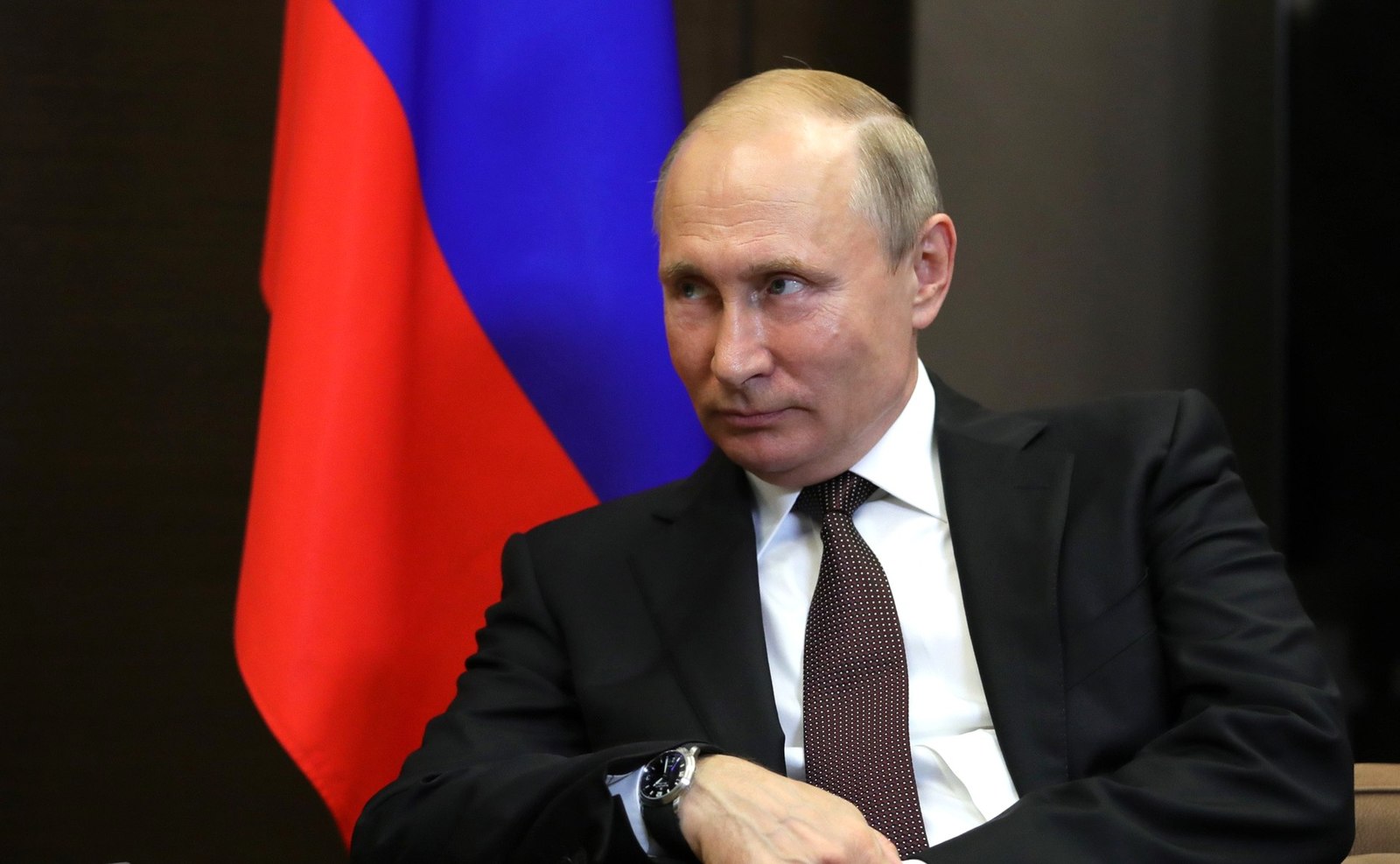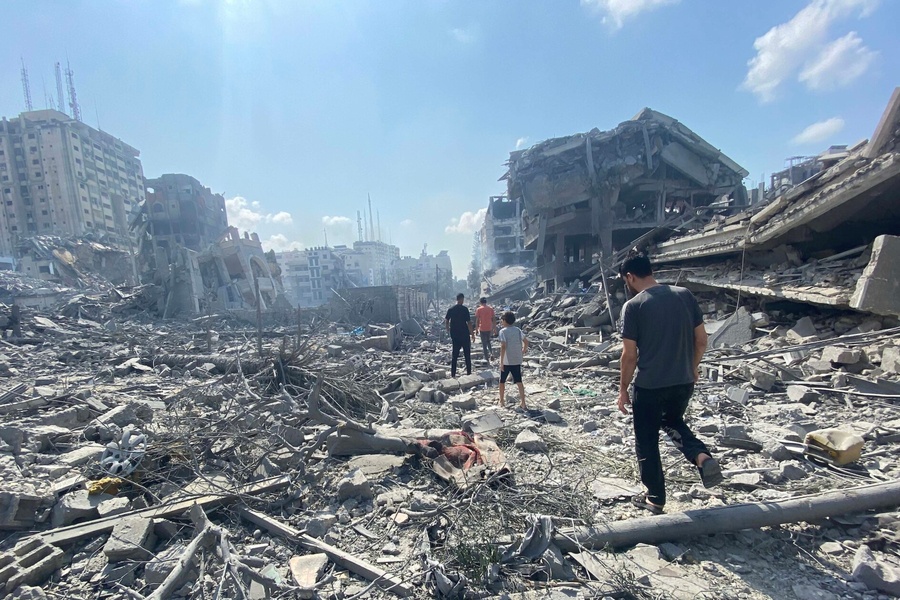Putin's Revised Foreign Agent Law Could Enable Mass Repression
While Vladimir Putin and his generals continue their brutal war against Ukraine, the Russian State Duma has been furthering Putin’s campaign to crush Russian civil society.

Published by The Lawfare Institute
in Cooperation With

In the past two weeks, it has become increasingly dangerous for Russian citizens to participate in anti-war demonstrations, to express opposition to Vladimir Putin’s invasion of Ukraine, or to share true information about the military campaign. The Russian State Duma has introduced legislation that threatens fines, forced military conscription and prison sentences for speaking the truth. At the same time, public pressure to support Putin’s lies has mounted. Russian professionals who refuse to sign open letters supporting the purported “special military operation” in Ukraine have been sacked from their jobs. Russian university students who show up at protests have faced expulsion.
The latest revision to Russia’s law on “foreign agents” is set to make things worse. Up until now, the Russian government’s campaign to suppress the truth at home has not been fully coordinated. The revised law would change this.
Earlier “foreign agent” laws from 2012 and 2014 targeted foreign NGOs and media outlets. A December 2019 update extended the “foreign agent” label from organizations to individuals. Then, in December 2020, the category of “foreign agent” was broadened further to include individuals “considered to be engaged in political activities ‘in the interests of a foreign state.’” Human rights organizations warned that this marked “a new spiral of repression in Russia.” They were correct. This law has been used to silence the regime’s critics, most of whom have no actual connection to any foreign state.
A bill introduced on March 10 by the Russian State Duma takes things even further. Under that bill, the Ministry of Justice would create a unified registry of present and former individual “employees and members of organizations” that “have been declared ‘foreign agents’ or who are associated with them.” Those “associated” would include “individuals deemed by the state to have been politically active and received money or assistance from ‘foreign agents.’”
Why expand the “foreign agent” law and create a unified registry at precisely the moment when most foreigners have left Russia? The revised law is primarily aimed at intimidating Russians. Many companies, NGOs and media outlets evacuating Russia are leaving Russian personnel behind. Those Russians who maintain a connection with foreign organizations might face persecution or arrest. What’s more, the law’s vague language of “association” means that it can easily be extended to include Russians with very loose connections to foreign organizations.
Journalists and academics have been talking in recent days about the “Stalinization” of Putin’s Russia. It is too soon to know if Putin is purposefully borrowing from Stalin’s playbook of totalitarian rule. But Soviet historians know what it means for a country to close its borders, suppress free information and criminalize all contact with the outside world.
The revised “foreign agent” law provides the sort of quasi-legal foundation that the Stalinist state deployed in the 1930s to arrest and repress people across the Soviet Union. It is also uncomfortably reminiscent of the Soviet campaign against “enemy agents.”
In 1937 and 1938, tens of thousands of Soviet citizens with ties abroad, Soviet citizens of certain ethnicities (including German and Polish), and foreign nationals were arrested on trumped-up charges of spying for foreign governments.
By then, most American and European businessmen had fled the Soviet Union; so had many journalists. They left in 1936 as Stalin began to close the country’s borders. But some foreigners remained behind, and it became suicidal for Soviet citizens to associate with them.
One of the Americans who stayed was Spencer Williams, who ran the Moscow office of the Russian-American Chamber of Commerce. In a July 1937 letter home, he described an atmosphere of intensifying fear:
All foreigners now are lumped together in one category—spies, potential or actual. The emphasis on this is so insistent that I cannot blame any Russian for being intimidated. It affects even official relationships so that, taken together with all the numerous changes and disappearances, I have the feeling that I’m starting all over again as in 1930 but on a less auspicious basis.
“Numerous changes and disappearances” was a euphemism for a broad campaign of state-sponsored terror that was then gaining steam. Between August 1937 and November 1938 more than 1.7 million people in the Soviet Union were arrested and sent to the Gulag or shot as purported enemies of the state.
Williams was not arrested, but his Soviet secretary, Tatiana Sofiano, was not so lucky. She was arrested in November 1937 and falsely accused of espionage. The U.S. State Department knew of her case, and of cases against many other Soviet citizens and Americans. But it saw itself as powerless to intervene.
Why talk now about the Soviet 1930s? What lessons might this hold for the present moment? Present-day Russia is not the Soviet Union in 1937. And the creation of laws that could enable mass arrests does not mean that mass arrests will follow. But the danger is real. Putin is shutting down Russian civil society, taking new steps every day to suppress independent voices. A unified registry of “foreign agents” managed by the Ministry of Justice is a tool that could readily be used for mass repression.
NGOs and media outlets that are registered as “foreign agents” should be doing everything in their power to get their Russian employees and their families out of Russia. The door for leaving the country is rapidly closing. Foreign organizations should also recognize the risk that continued ties with them may pose to those Russians who remain.
Finally, as the war rages in Ukraine, we should also pay close attention to what is happening inside Russia. Before Feb. 24, Putin had already begun silencing voices of opposition and protest that might have held him accountable for launching a war of aggression. Since then, he has intensified this effort, while stepping up his campaign of disinformation about the war and about the West. The Russian State Duma has supported Putin with new bills aimed at stifling all dissent.
The revised “foreign agent” law is part of a larger offensive to crush Russian civil society. It serves Putin’s war of aggression and thus poses a threat to us all.





